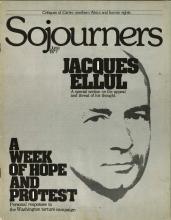There is a widespread recognition in the world today that we ought to be living in a new way. Selfish, egotistic humanity needs to be replaced by selfless, socially-oriented persons. The attraction of [left-wing ideology], not to mention a raft of "new age" cults, can best be explained by the hope they express for a new order and a new style of human existence.
Obviously Jesus is calling people to a distinctive lifestyle, epitomized by his phrase about going the second mile (Matthew 5:41). But there is an uneasy feeling among many Christians that they have not really come to grips with this agenda, and that discipleship can be experienced at a deeper level. In order to present the biblical vision for a new humanity, and to help believers get moving in the right direction, I offer a theological framework, with three points of reference, in an effort to grasp the meaning of discipleship more adequately.
The Foundation
It is a serious misunderstanding of discipleship which presents our calling in terms of law rather than gospel. How often in a concern to promote costly obedience we come across as heavy moralists, or as legalists who drive people into guilt and despair.
In Jesus' message the call to follow him occurs within the context of his gracious proclamation concerning the goodness and gift of God who is bringing his kingdom near on behalf of all who have ears to hear. Following him was not understood to be a burdensome obligation in the contract of salvation. On the contrary, God deals with humanity through covenant, not contract, and only asks for repentance and faith. The foundation of discipleship is gospel, not law.
Read the Full Article

